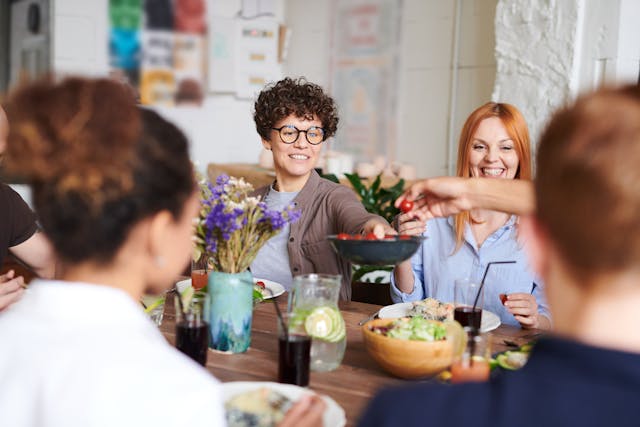Gender, Care and Food Practices
A critical reflection on traditional roles between activism and resilience
DOI:
https://doi.org/10.31273/eirj.v12i2.1614Keywords:
food activism, gender roles, community resilience, women's movements, empowermentAbstract
In times of increasing insecurity, women often emerge as key figures in coping with crises through contexts of care. This article aims to critically reflect on how food and specific forms of food activism, such as Ollas Comunes, allow for a rethinking and re-evaluation of traditional gender roles related to food. These roles, which are deeply embedded in social and cultural narratives, constitute the foundation of shared social representations. Historically, women's participation has been constrained to the private and domestic spheres, with a focus on matters related to household management and food preparation. Nevertheless, women's social movements of care that focus on environmental, food, and basic needs issues are gaining prominence and creating spaces for activism and resistance. The literature indicates that women's groups, frequently emerging from pre-existing informal networks, serve as vital resources during emergencies, providing a crucial service that is implicitly included in reconstruction policies. Their proactive involvement is based on a broad and deep knowledge of everyday realities and responds to the specific needs of the target community. These women-generated spaces, in which food serves as a central symbol and resource, allow women to respond to immediate needs, share ideas and knowledge, and promote community resilience. Despite significant challenges, including those related to legitimacy and social integration, these movements continue to develop and organise, becoming essential vehicles for social support and community resilience. This critical analysis demonstrates how food, through women's activism, can serve as a potent instrument for empowerment for these social actors who are acknowledged in the public sphere. The innovative actions undertaken by these groups address not only basic needs but also promote the creation of material and social structures capable of redefining women's gender roles in care and society. This, in turn, makes them more powerful and influential.
Downloads

Downloads
Published
Issue
Section
License
Copyright (c) 2025 Martina Arcadu

This work is licensed under a Creative Commons Attribution 4.0 International License.
Authors who publish with this journal agree to the following terms:
Authors retain copyright and grant the journal right of first publication with the work simultaneously licensed under a Creative Commons Attribution License (CC-BY), which permits use and redistribution of the work provided that the original author and source are credited, a link to the license is included, and an indication of changes which were made. Third-party users may not apply legal terms or technological measures to the published article which legally restrict others from doing anything the license permits.
If accepted for publication authors’ work will be made open access and distributed under a Creative Commons Attribution (CC-BY) license unless previously agreed with Exchanges’ Editor-in-Chief prior to submission.
Authors are able to enter into separate, additional contractual arrangements for the non-exclusive distribution of the journal's published version of the work (e.g., post it to an institutional repository or publish it in a book), with an acknowledgement of its initial publication in this journal.
Authors are permitted and encouraged to post their work online (e.g., in institutional repositories or on their website) prior to and during the submission process, as it can lead to productive exchanges, as well as earlier and greater citation of published work. (see: The Effect of Open Access)
